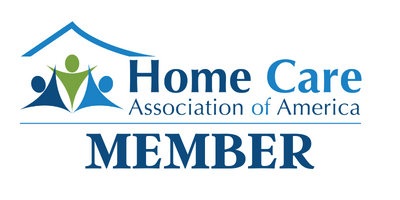When a loved one needs assistance in their home as the result of an illness, surgery, or other care challenges, we often look to in-home care options. The terms “home care” and “home health care” sound nearly the same, but they provide distinctly different services. Both types of care, however, are likely available in your area, and can be tailored to fit the specific needs of an individual.
In a nutshell, home care offers non-clinical help, such as personal care, meal prep, and companionship. Differently, home health care provides professional medical assistance by licensed, trained health professionals. That ends up being a pretty big difference. Another distinction is that home health care is generally covered by Medicare or private insurance, while home care is not.
Home Health Care
Home health care is clinical, medical supervision provided by a licensed professional. Registered and licensed practical nurses, occupational therapists, and physical therapists can all provide home health care, often through home health agencies, or in some cases, hospice agencies. This type of care is usually prescribed by a doctor as part of a senior health care regimen following hospitalization or injury.
Home Health Care services can include:
- Monitoring of health status and vital signs
- Wound and incision care
- Administration of prescription medications or shots
- Medical tests
- Physical and occupational therapy
Who can benefit from home health care?
- Seniors recently discharged from the hospital, a rehabilitation facility, or a skilled nursing facility
- Elderly people who need monitoring after a recent medication change
- Individuals whose fragile health prevents them from safely traveling to and from doctors’ offices
- Seniors experiencing an overall decline in function who could benefit from occupational or physical therapy to regain independence
Home Care
Home care services provide both direct assistance and compassion for individuals who need help with daily activities. Levels of care vary by need, and can range from daily dressing and meal prep to weekly home chores or transportation to appointments. Home care aides are trained to understand the nuances of home care, but are generally not licensed to provide medical services.
Home Care services can include:
- Assistance with activities of daily living (ADLs) like dressing, bathing, and grooming
- Meal preparation or delivery, cooking and cleanup
- Household chores, cleaning and organizing
- Help with bills or financial management
- Companionship — reading aloud, chatting, and in-home activities
- Transportation to appointments and errands
Who can benefit from home care?
- Seniors who need help with activities of daily living (ADLs), from bathing to using the restroom
- Elderly people who are still active but require transportation to and from activities, errands, and medical appointments
- Individuals who would like help with cooking, cleaning, and other household chores
- Seniors who are isolated, living alone, and need companionship
Can we combine in-home care services?
Often, families find that a combination of home health care and general home care is beneficial for their loved one. In-home healthcare professionals are able to provide necessary medical services, while home care aids assist with everyday activities. This complete approach ensures that a loved one’s medical and emotional needs are both being met.
At Arcadia New England, we can provide both home health care or home care services, and a combination of both, as necessary. Our caregivers are local, trained health care and comfort-care professionals who provide necessary medical services and personal assistance in our client’s homes. We thoroughly assess each client’s needs ahead of time, so that we can match just the right caregiver with each client. Our mission is to help individuals avoid extended hospital and rehabilitation stays, and continue to live independently, while getting the help they need to be healthy, safe and feel secure.
Who pays for home health care and home care?
This is our most common question, as in-home services can be expensive. As we’ve explained, home health care generally falls under the umbrella of medical services, while home care involves personal assistance and therefore is not considered a medical need.
Insurance tends to cover these types of care accordingly:
Medicare and private insurance plans cover home health care when prescribed by a physician. Ask the doctor about home health care if you think it would be beneficial. This service is available to any senior who qualifies for Medicare.
Medicaid covers both types of care for income-qualified seniors though coverage amounts vary by state.
Private Pay is common for home care, but is only necessary for home health care that hasn’t been ordered by a physician.
Long-Term Care Insurance covers home care only if it’s included in your loved one’s plan. Check with their insurance agent for specifics.

We hope this article has helped clarify the difference between Home Health Care and Home Care services. If we can assist you in any way, please contact us! The chart below further illustrates the difference between the two types of in-home care services.
Below is a side-by-side comparison of the two different services:



